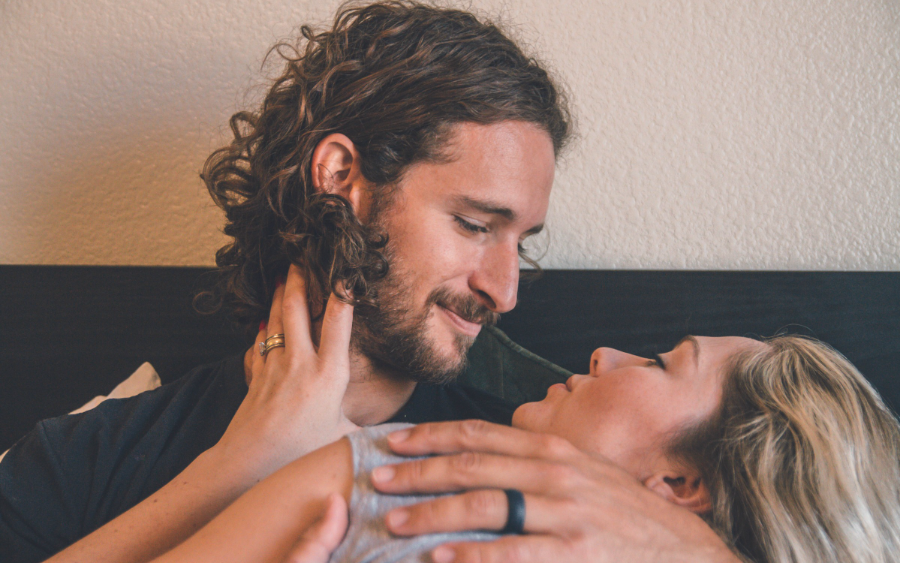Vulnerability
The prerequisite to intimacy
By Corinne Farago

“Vulnerability is the core, the heart, the center of the human experience.”
– Brene Brown
Every one of my coaching couples lead busy lives. Most of them have to juggle their schedules to even find time to be alone and intimate together. They’re effective in getting things done, building careers, organizing kids, and planning life.
The management they bring to every part of their busy lives however, doesn’t work when it comes to vulnerability.
Vulnerability can’t be slotted into a busy day. It can’t be added to the to-do list. Vulnerability is not another skill to master, like running a meeting or throwing a dinner party.
When couples come to see me about love and intimacy they sit down to have one of the bravest conversations they can have as a couple.
I appreciate how challenging it is to hear our partner’s dissatisfaction or unmet desires. We’re not comfortable hearing about our partner’s pain. Rather than listening with a desire to understand, we want to bypass the hard stuff and move directly into fixing and solving.
We hold tight onto our armor and use whatever strategies we’ve developed over our lives to deflect, what feels like arrows coming our way. Anger, blaming, judging, withdrawing, are all strategies we use to fend off what we fear the most, becoming vulnerable and laying down our shields.
Vulnerability is reached when we dig down below emotions like, anger, blame, judgment and any other reactive emotion that protects our position of victimhood.
When we’re vulnerable we take ownership of our feelings, and accept responsibility for our reactions to life.
Vulnerability is actually a gift that descends upon us when we stop pretending to have it all together and admit to our human flaws and fragility. It’s a gift we give to ourselves and our partner, because it shifts our state from one of closed-off superficiality, to one of feeling and deep sharing.
When one partner in a couple opens the door to vulnerability, they create space for their partner to join them there, and it’s in that space of shared vulnerability where hearts connect and intimacy is experienced.
Vulnerability is a prerequisite to love, intimacy and connected sex. Without it, we live our relationships skimming the surface, avoiding deeper conversations, and feeling emotionally stagnant.
Welcoming in vulnerability is one of the scariest and bravest things a couple can do together.
Vulnerability and Trust
Before we allow ourselves to become vulnerable, we first need to trust that our partner will hold our vulnerability with care, and they’ll become attuned enough to our feelings, to know what we need to feel safe in that vulnerable place.
Supporting your partner in their vulnerability and building trust means:
- Talking less and listening more to what our partner is expressing
- Not trying to fix them or solve their problem in the moment
- Asking open-ended questions to help them express themselves fully
- Being judgment free, even if you’re not in agreement with their perspective
- Empathizing with words or body language of support
- Accepting that they have a right to feel what they’re feeling
Every time we show up for our partner in their vulnerable moments trust is being built. Our partner learns from experience that it’s safe to be vulnerable with us. They learn they can trust that what they share will be heard and honored as their truth.
Vulnerability and Intimacy
Vulnerability is sexy.
When we open up sexually and let our partner not only into our bodies, but into our hearts, fears, dreams, insecurities, we’re building intimacy.
When we risk asking for what we want, and being seen as less than perfect, when we open up to the rawness of orgasmic pleasure, we’re building intimacy.
In our vulnerability we experience the kind of sexual intimacy that’s not represented in mainstream porn or media.
Vulnerability is the foundation to great, mind-blowing sex.
That’s a fact!
If a couple loses their ability to be vulnerable with each other, sex becomes functional or transactional. We go through the motions, feeling disconnected, unmet, and emotionally unfulfilled.
Disconnected sex leads to loss of interest and desire, which is the number one reason most couples seek out sex and intimacy coaching.
Here are some of the things my couples have found helpful in supporting vulnerability:
- Share about your day from a ‘feeling’ rather than ‘doing’ perspective.
- Practice radical honesty from a place of love.
- Admit when you’ve made a mistake.
- Ask for what you want clearly.
- Confess disappointment without blaming.
- Experiment with keeping your eyes open during sex or making out.
- Show your vulnerable feelings. Don’t be afraid to cry.
- Be curious about your partner’s experience.
- Ask questions that lead to vulnerable conversations.
If we think of our relationships as a garden, imagine vulnerability as one of the ingredients needed to keep your plants growing strong and bearing fruit.
Tend to your garden daily with deep watering that sinks down into the roots.
Deep feelings and deep sharing will nurture deep love and desire.
If you want to know more about how to nurture your relationship with vulnerability that leads to intimacy, reach out and let’s talk about what love, sex and desire looks like in your life.
You can schedule a complimentary 15 minute Discover Call by clicking here :-)

Examine Your Core Beliefs and Reach New Levels of Intimacy
By engaging in honest self-reflection and exploring the source of our stories, we can better understand ourselves and improve relationships by approaching conversations with clarity instead of fear or judgement. By owning up to what we’re telling ourselves and actively listening to our inner dialogue, we can unravel distorted thinking and create healthier connections with those around us.
9 Reasons Why Couples Work With a Relationship Coach
I love my couples. They reach out for sex coaching, wanting to create a fulfilling sexual and intimate life. The number one obstacle to achieving their goals is sometimes an unhealthy relationship dynamic. For most of us, opening ourselves to sexuality with our partners requires trust, connection and a sense of emotional safety. If our relationships are being impacted by unhealthy dynamics that leave us triggered and harboring conscious or unconscious resentment, sexuality will be impacted or, at worst no longer exist.
Sexual Trauma and PTSD
Sexual Trauma and PTSD keep painful memories from our past alive and present in our day to day lives. Hypnotherapy uses the power of your own mind to unlock the hold these memories have on you, by helping your brain process them in a gentle and effective way. If you suffer from trauma, you’re well aware that some memories trigger feelings of present-time fear, keeping you anxious, and on high alert, even though consciously you know you’re no longer in danger. If some of those memories have created Post Traumatic Stress Disorder that means your brain is ‘matching’ those past memories to present day experiences, or what is referred to as ‘pattern matching’ in Hypnotherapy.
New Ways to Heal Old Wounds
When two people get together to form a relationship, there are two sets of wounds merging and intertwining, our partner’s and our own. We know when our old wounds are being dragged into a conflict because our pain and defensiveness will suddenly spike. If our partner is speaking the same words as our inner abuser, the armor will go up, and disagreements will escalate into shouting, tearful battles.






Leave A Comment